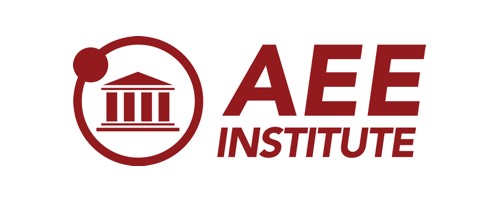Energy Foundation made its first grant to Advanced Energy Economy Institute in 2012.
Nearly 3.5 million people are working to modernize the U.S. energy system as part of the advanced energy industry, driving economic growth in communities across the U.S. Advanced Energy Economy Institute (AEE Institute) supports this progress by educating policymakers and candidates on the economic power of moving forward with a modernized grid and electrified transportation.
Virginia took a step ahead on energy in March 2018, when strong, bipartisan leadership delivered policies that will triple energy efficiency investments and double renewable energy development in the commonwealth by 2028. Virginia AEE, an affiliate of AEE Institute, was among 10 stakeholder groups Governor Ralph Northam (D) convened to create a roadmap for the state.
Earning that seat at the table took several years of advance work for AEE Institute to establish itself as a technical and policy resource. In 2015, the Virginia General Assembly froze electric rates at the behest of the state’s utilities—Dominion Energy Virginia (Dominion) and Appalachian Power (APCo). The utilities claimed they needed the rate freeze to cover expected costs of implementing the federal Clean Power Plan (CPP)—a claim that was debunked by an AEE Institute analysis. This rate freeze resulted in excess profits and drove bipartisan and cross-sector interest in a review of utility regulation by the legislature.
Then, when energy became a key issue for candidates in Virginia’s 2017 elections, AEE Institute provided candidates, regulators, and policymakers along the political spectrum with education on the opportunities and benefits of the advanced energy sector. The 2017 election brought a political shift to the state legislature. This new political dynamic added pressure for Dominion and APCo to reverse course on the rate freeze and seek to invest any future over-earnings in new projects.
In response, newly elected Governor Northam organized multi-stakeholder negotiations, which included Virginia AEE and were informed by AEE Institute policy education. The ultimate outcome was the passage of a pro-advanced energy bill (SB 966) by the General Assembly, which the governor signed in March 2018. About 97,700 people now work in advanced energy across the state—more than those employed in groceries and supermarkets (75,133), and twice as many as those at hotels, motels, and resorts (45,777).
Virginia’s progress on advanced energy is part of a growing movement at the state level, with Nevada, Illinois, and Ohio taking major steps forward in recent years. AEE Institute is investing in multi-state work to educate gubernatorial candidates and staff, as well as state utility commissions and the Federal Energy Regulatory Commission, on effective policy positions that will provide societal benefits to the most community members.

